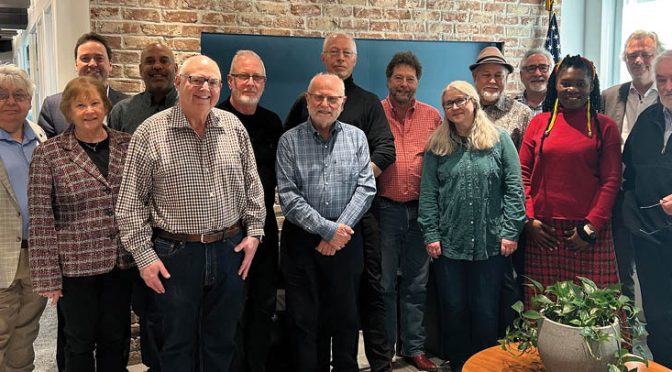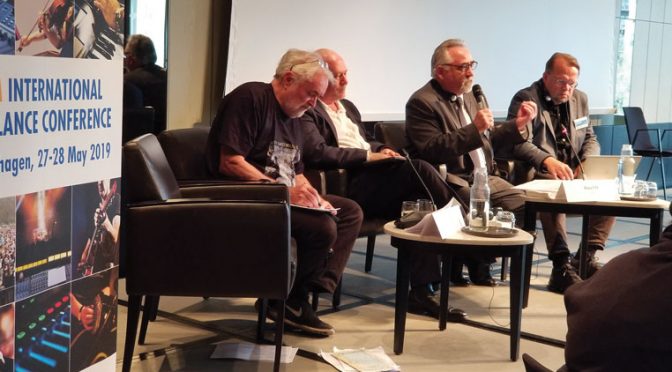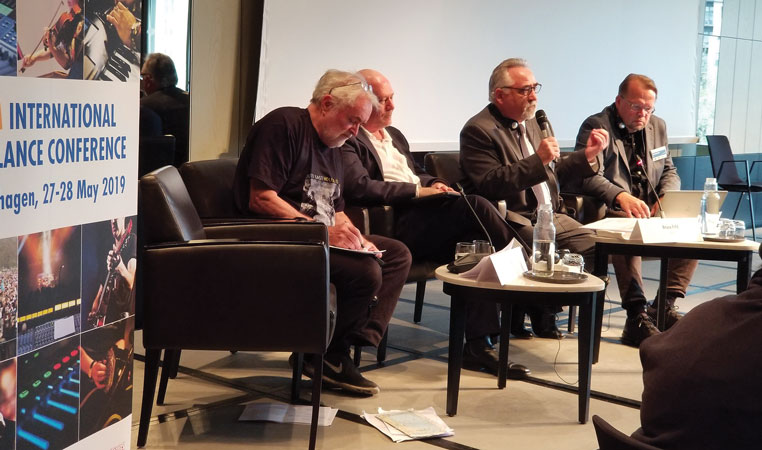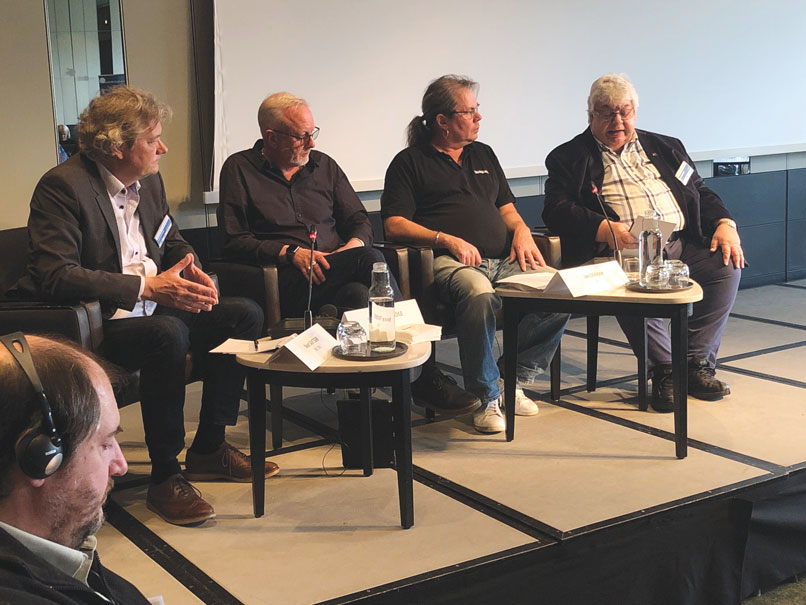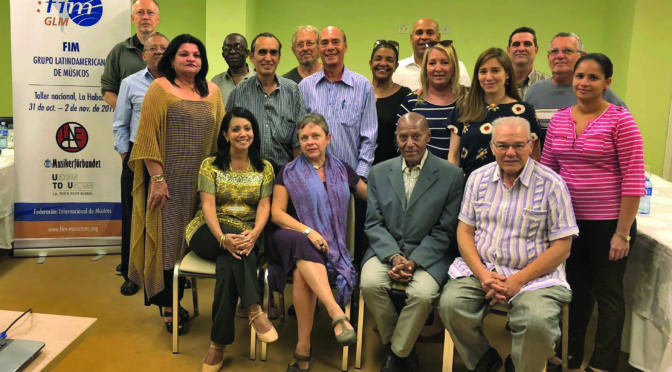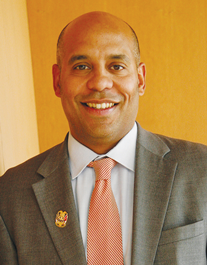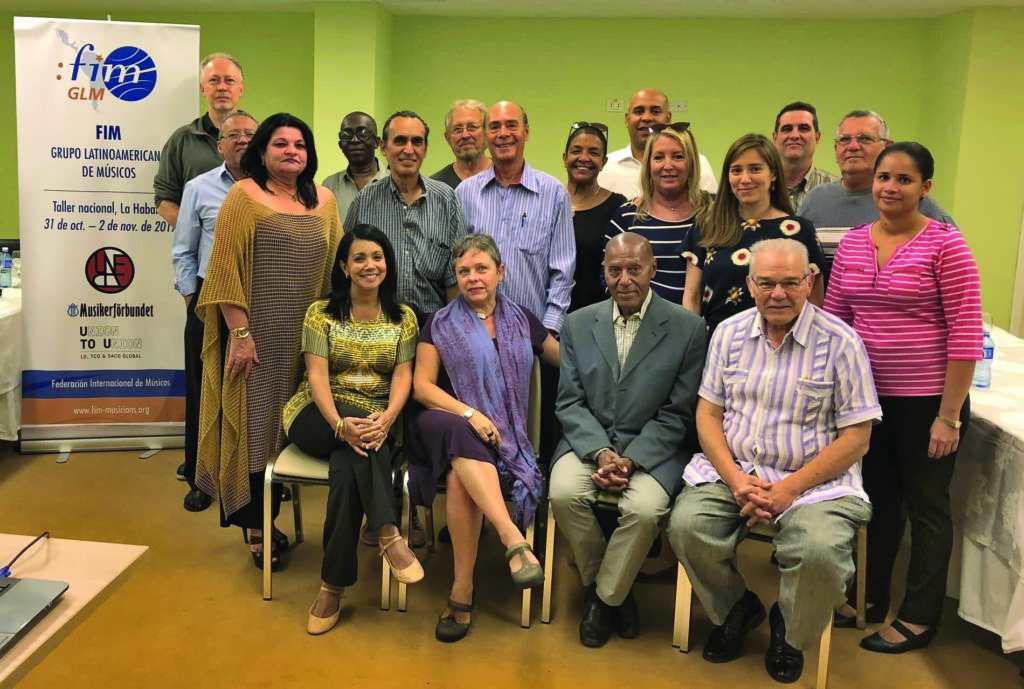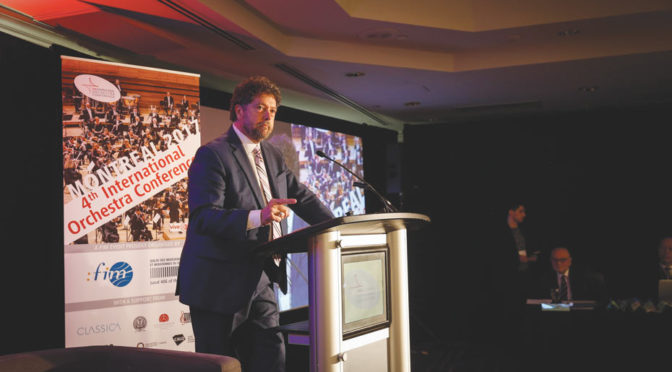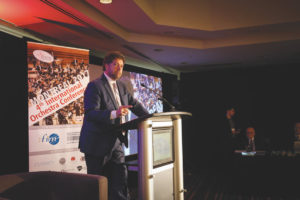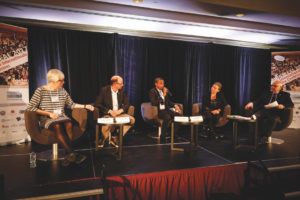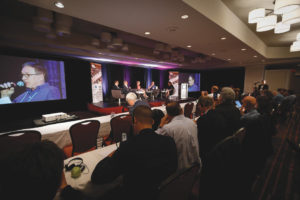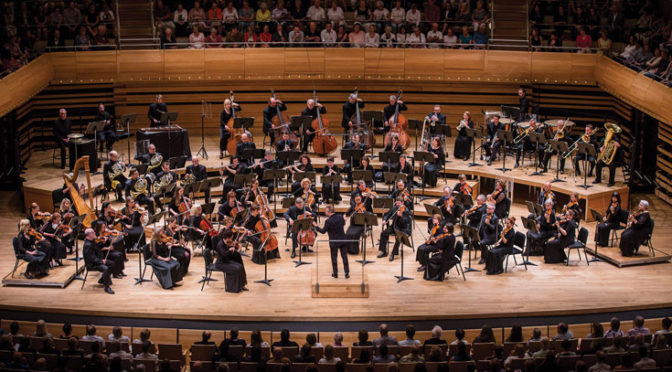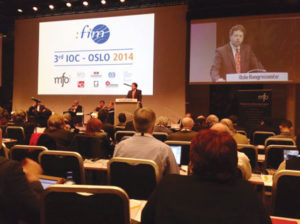by Benoît Machuel, International Federation of Musicians General Secretary
With the Presidium of the International Federation of Musicians (FIM)*, I had the privilege of being received by the AFM IEB on Tuesday, March 28, 2023, at the AFM headquarters in New York. Initially scheduled for March 2020, this meeting was postponed to December 2021 due to the pandemic, and then delayed again, for technical reasons. It was preceded on March 27 by a periodic meeting of the FIM Presidium in which AFM President Ray Hair participated as FIM Vice President.
Two recent international meetings involving FIM were discussed with the IEB: the ILO Tripartite Technical Meeting on the Future of Work in the Arts and Entertainment Sector and the 43rd Session of WIPO’s Standing Committee on Copyright and Related Rights (SCCR), held in Geneva at the headquarters of these organizations.
Founded in 1919, the ILO is the oldest UN agency and the only one based on tripartite representation: governments, workers, and employers. The conclusions adopted at the February 2023 technical meeting encourage member states to take concrete measures to guarantee access to collective bargaining and social protection for all workers in the sector, whether employed or self-employed. These recommendations also cover working conditions, wages, health, mobility, and intellectual property. FIM is satisfied with these outcomes, obtained at the end of a week of delicate negotiations conducted by a team of representatives from FIM, International Federation of Actors (FIA), and UNI Media and Entertainment (UNI-MEI).
The 43rd session of the SCCR (March 2023) was the occasion of a major mobilization of FIM and its partners, representing collective management organizations at the international level (SCAPR, AEPO-ARTIS, and FILAIE). Our objective was to gather the support of as many member states as possible in favour of fair remuneration of performers in the online environment. To make delegations aware of the problem, we organized a special event consisting of a panel discussion followed by a concert and a cocktail. This event was a remarkable success.
Subsequently, we received strong support from Latin America and Africa at the following plenary session, with the European Union keeping a neutral position. On the other hand, the delegation of the United States expressed reservations about including this question as a standing item on the SCCR agenda, which has the effect of slowing down and impeding further progress on this essential subject. With the help of the AFM, we hope to obtain a softening of the United States’ position for the next committee meeting scheduled in November this year.
These two themes gave rise to exchanges of views and technical comments between representatives of FIM and the IEB, particularly on the question of streaming. The participants assessed the respective merits of collective agreements and a statutory right to remuneration subject to collective management (as in Spain, for example). This second option, currently defended at WIPO by FIM and its partners, has the advantage of being fully compatible with the treaties and the principle “no collection without distribution,” adopted by FIM in 2012 on the AFM’s initiative.
On behalf of FIM, I would like to thank AFM President Ray Hair for his involvement in the work of our organization and the IEB for its attentiveness during our joint meeting on March 28. I also wish to extend our thanks to the AFM staff for their kindness and availability throughout our visit.
*The Presidium: President John Smith, OBE (UK); Vice Presidents: Ray Hair (US), Edith Katiji (Zimbabwe), Anders Laursen (Denmark), Beat Santschi (Switzerland), Horace Trubridge (UK); General Secretary: Benoît Machuel (France)
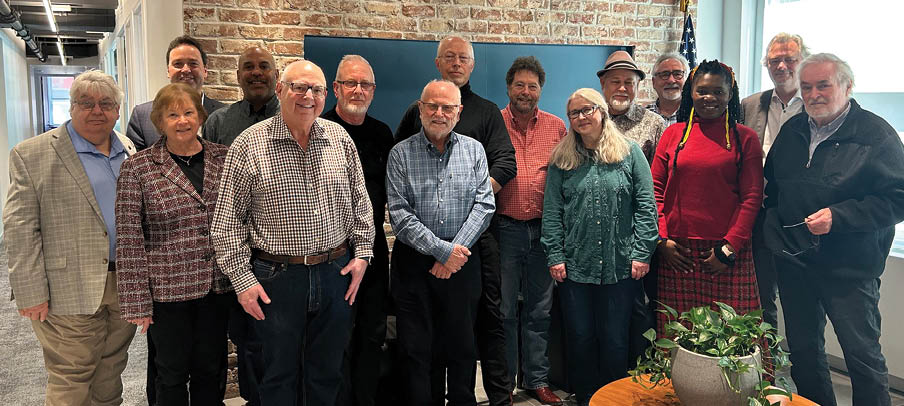
Pictured above, AFM International Executive Officers and FIM Officers at the New York City office (L-R): Alan Willaert, AFM Vice President from Canada; Ed Malaga, AFM IEB; Terryl Jares, AFM IEB; John Acosta, AFM IEB; Jay Blumenthal, AFM Secretary-Treasurer; Horace Trubridge (UK), FIM Vice President; John Smith OBE (UK), FIM President; Benoît Machuel (France), FIM General Secretary; Ray Hair, AFM President; Tina Morrison, AFM IEB; Dave Pomeroy, AFM IEB; Bruce Fife, AFM Vice President; Edith Katiji (Zimbabwe), FIM Vice President; Beat Santschi (Switzerland), FIM Vice President; Anders Laursen (Denmark), FIM Vice President.


